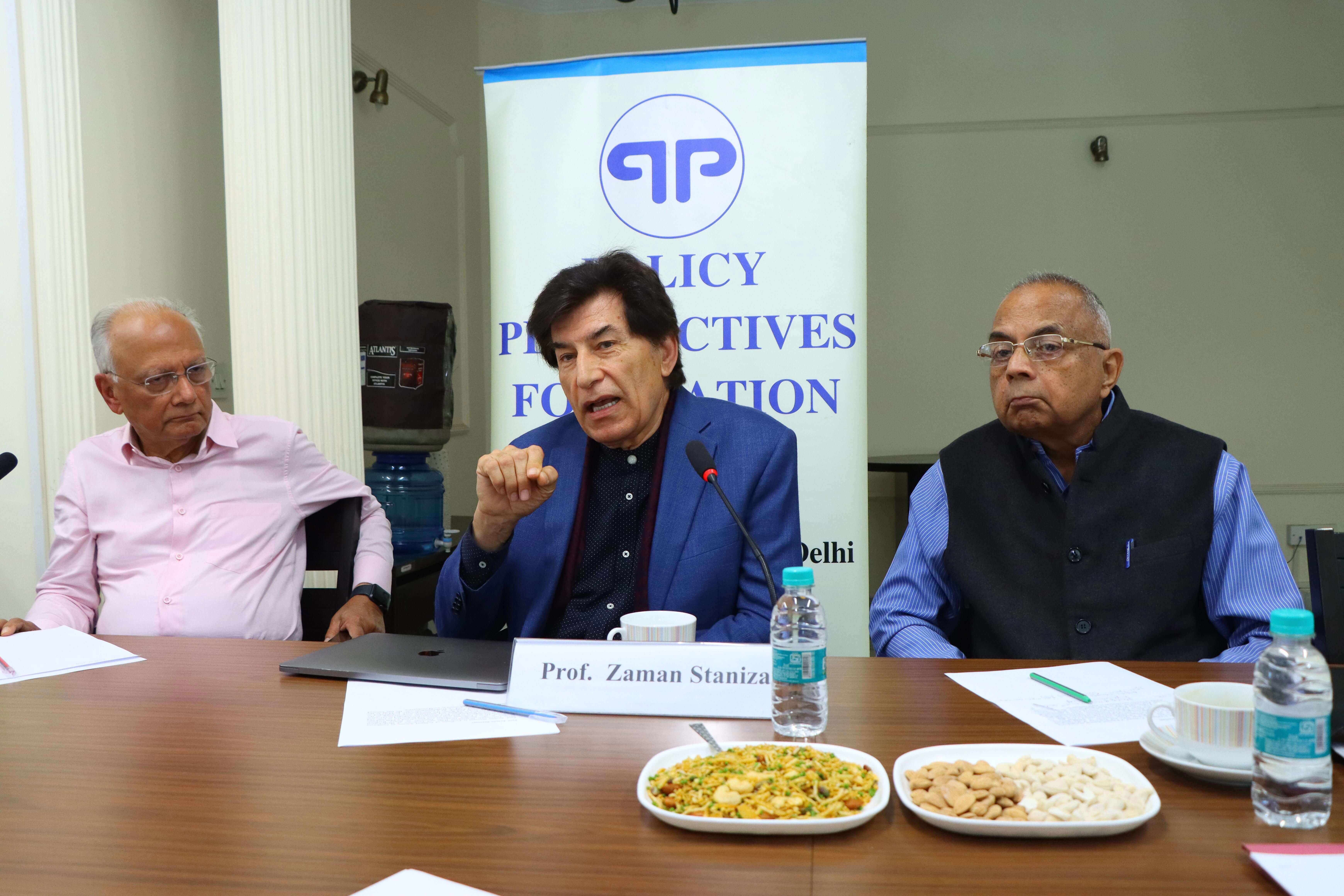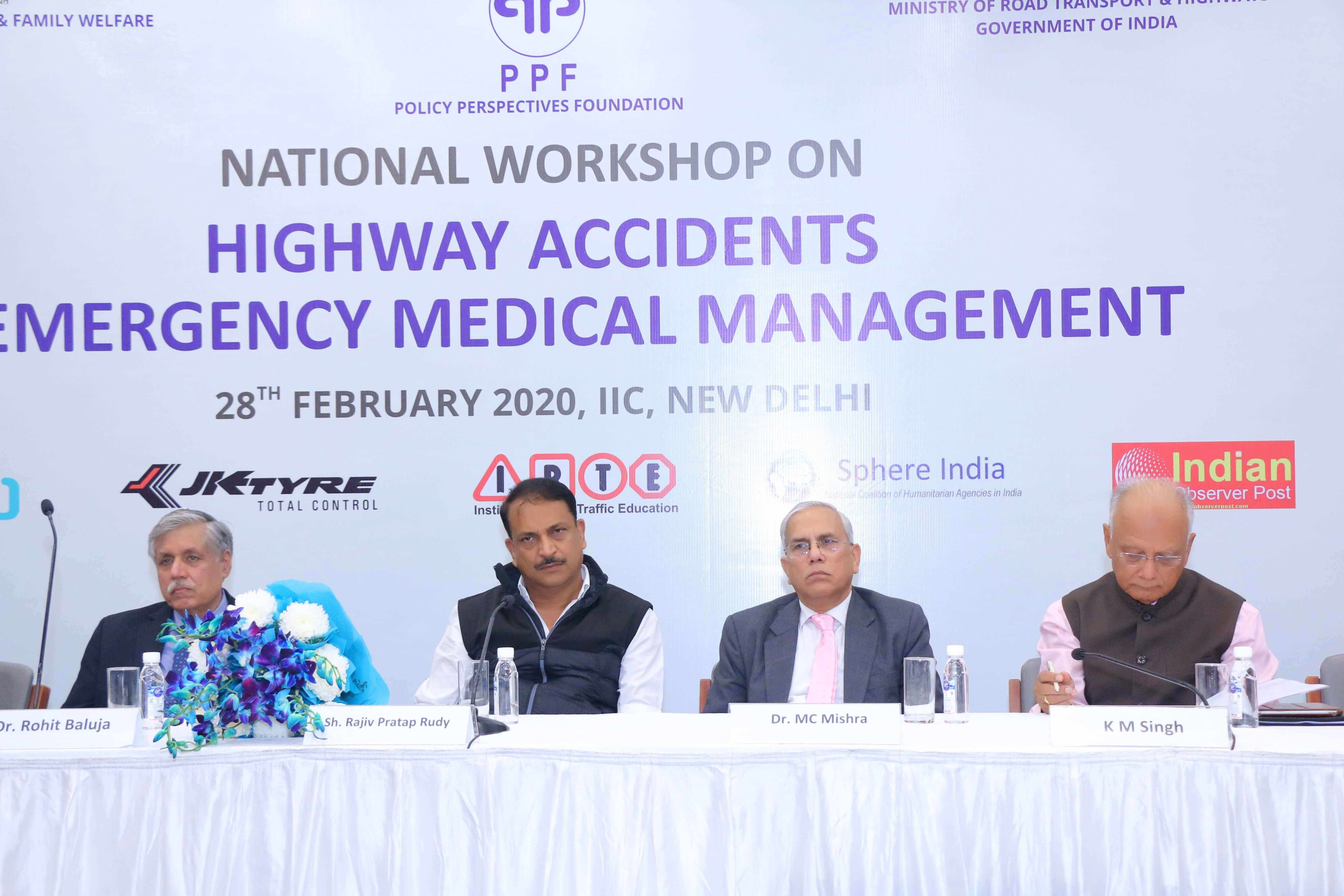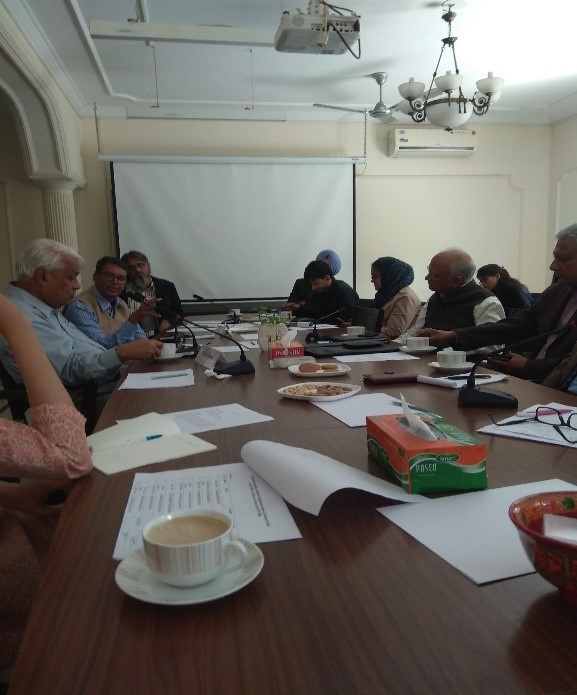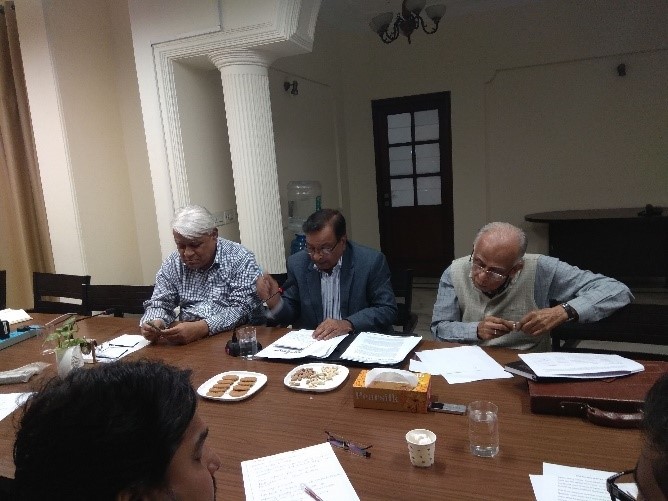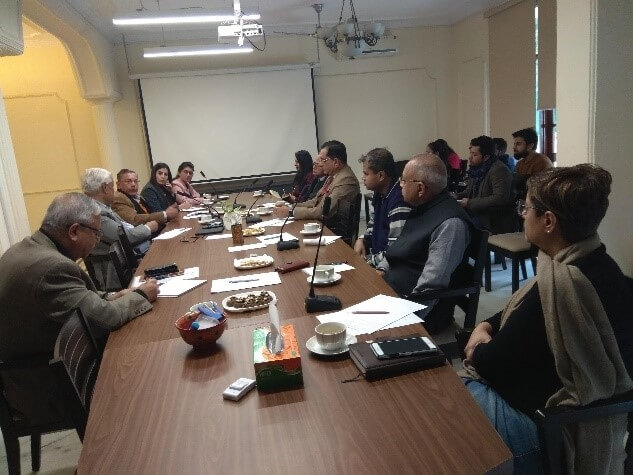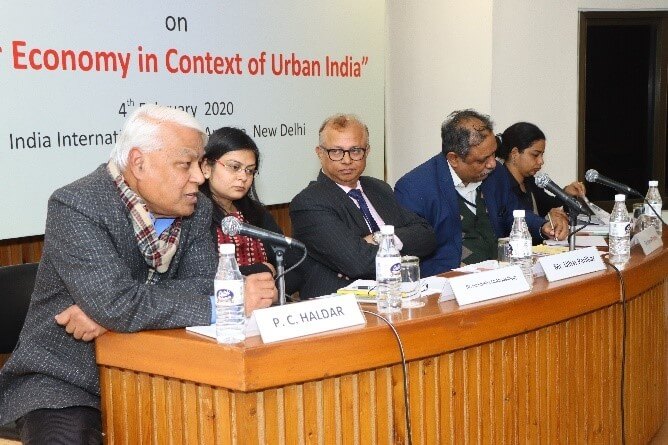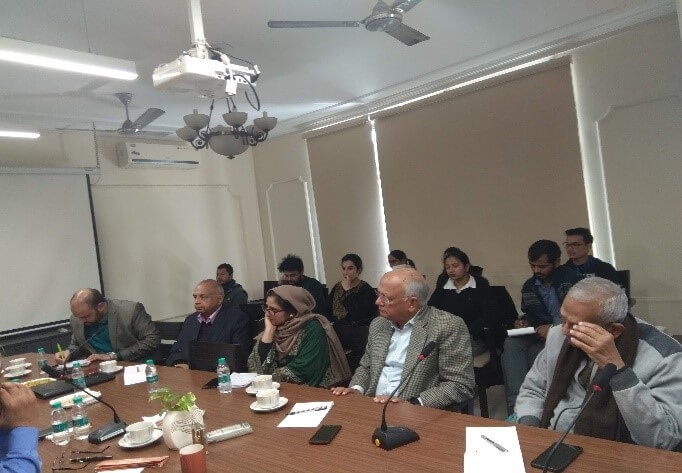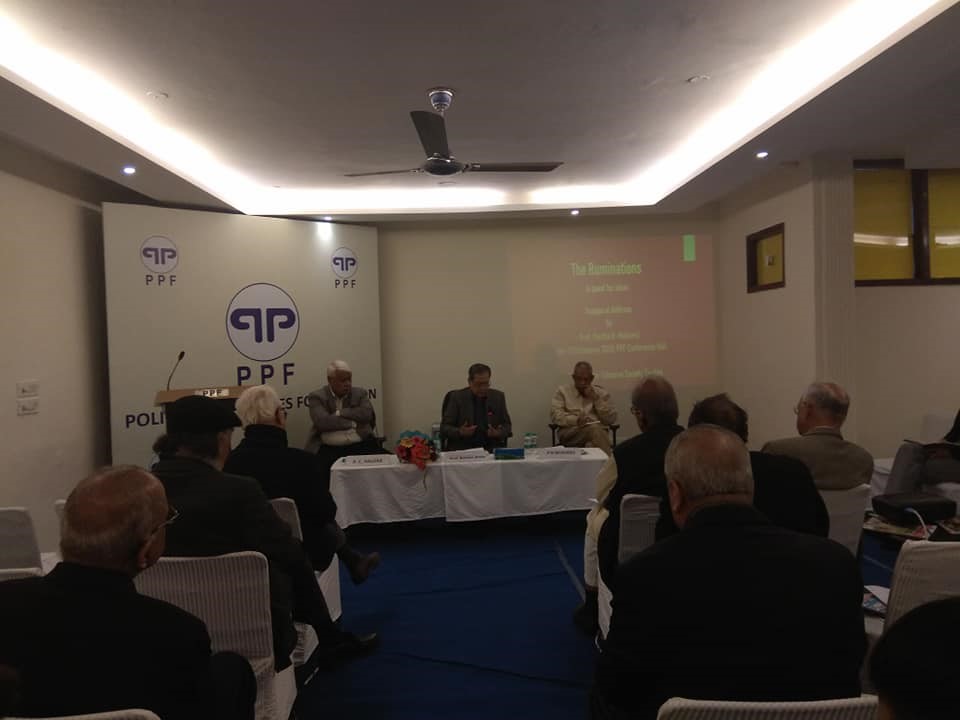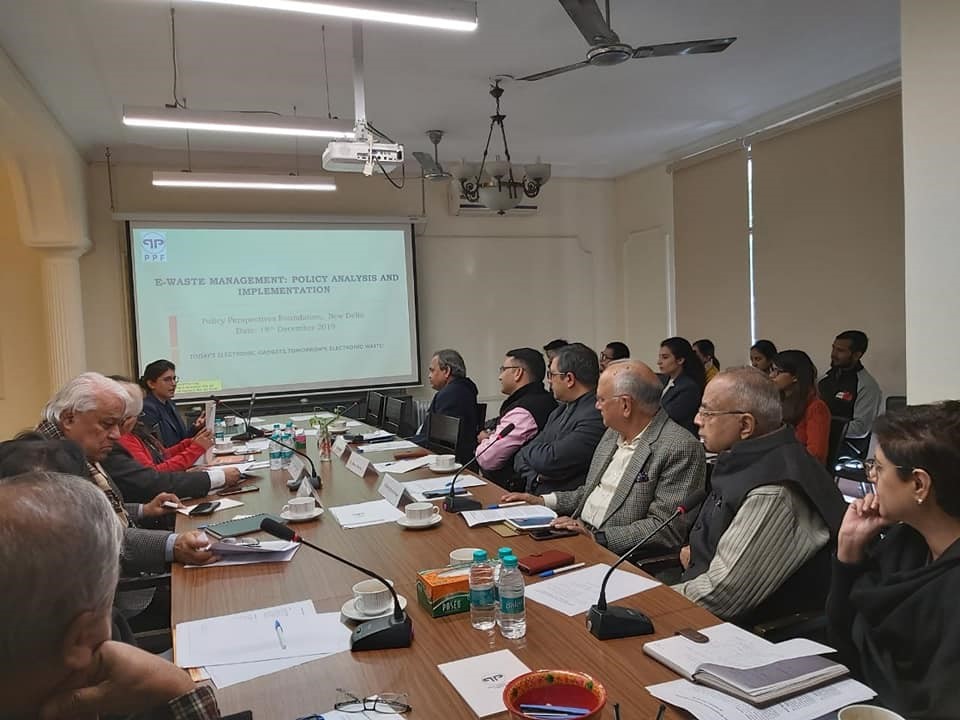India and Central Asia : Challenges and Opportunities
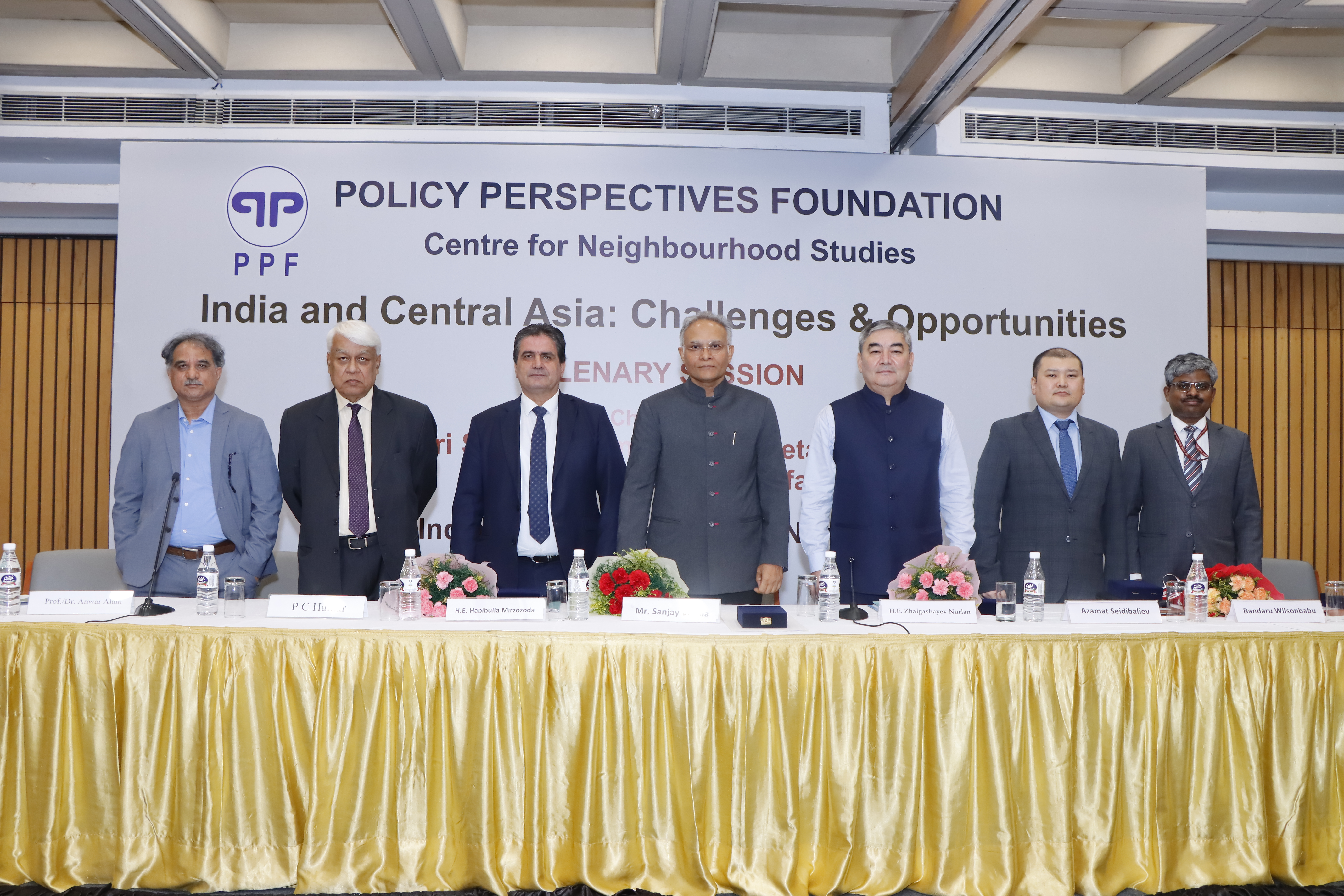
-
Place/Venue
India International Centre, New Delhi
-
DATE
30 Sep, 2022
-
Duration
3 days
About Events
Remarks by Secretary (West) at the Plenary Session of the International Seminar on “India and Central Asia: Challenges and Opportunities” (September 29, 2022)
September 30, 2022
Excellency, Ambassador of Kazakhstan, H.E. Mr. Nurlan Zhalgasbayev
Shri P C Haldar, President of the Policy Perspectives Foundation
Diplomatic colleagues from Tajikistan and Kyrgyzstan,
Distinguished Fellow at PPF, Dr. Anwar Alam
Excellencies, Ladies and Gentlemen
It is my pleasure to be part of the closing session of the Seminar "India and Central Asia: Challenges and Opportunities”. I am sure your deliberations over the last two days will add fresh perspectives and further inform India’s relations with Central Asia.
Given their strategic location, and natural resources, Central Asian states attract significant attention. Disruption is a buzz word that applies to our times, and it applies to Central Asia too. A version of the Great Game is unfolding in Central Asia between great powers, who may or may not be adversaries.
Friends,
With an aerial distance of only around 1350 km from Dushanbe, New Delhi (Chennai is further away from Delhi!) could be called the closest megalopolis to Central Asia. India is in the Central Asian frame too.
India’s linkages with Central Asia are part of our heritage and are well documented. Our countries have witnessed a continual exchange of people, goods and ideas in both directions, which has left a common imprint on our languages, aesthetics and traditions. Our histories also reflect a similar loss of agency and identity.
Three decades ago, we established diplomatic ties with the newly independent Central Asian countries. India has since concluded strategic partnerships with most of the Central Asian countries and has established bilateral mechanisms of Inter-Governmental Commissions, Foreign Office Consultations and Joint Working Groups for enhancing cooperation in various areas.
Prime Minister Shri Narendra Modi’s historic visit to all the 5 Central Asian countries in 2015 was instrumental in elevating our relations. India’s entry into SCO in 2017, the launch of an India-Central Asia Dialogue at the level of Foreign Ministers in 2019 and the first ever India-Central Asia Summit in January this year have consolidated our ties. At the India-Central Asia Summit, all sides agreed to hold regular meetings of Foreign Ministers, Trade Ministers, Culture Ministers, Secretaries of National Security Councils, India-Central Asia Parliamentary Forum. It was also decided to establish an "India-Central Asia Centre” in New Delhi, to further institutionalize our partnership. As a follow-up of the decisions taken at the Summit, India will be conducting a Special Training Course for Central Asian Diplomats and will also host a 100-member youth delegation from Central Asian countries.
As you are aware, Prime Minister Shri Narendra Modi paid a fruitful visit to Samarkand earlier this month for the SCO Summit, which symbolizes the importance attached by India to cooperation with the Central Asian countries, which are considered as the "core” of SCO. As the current chair of SCO, we look forward to welcoming the Central Asian Heads of State for the next SCO Summit in India.
Ladies and Gentlemen,
Today, as developing countries, we experience similar challenges of economic growth and development. Moreover, we face common threats of terrorism, extremism, drug trafficking and transnational crime in the region. India is a committed and reliable partner in the developmental journey of Central Asia. Given India’s experience and expertise in the fields of IT, education and healthcare, we have long been involved in the capacity building and human resource development of the Central Asian countries. I am pleased to share that more than 6200 professionals and 1500 students from Central Asia have trained in India under our ITEC programme and ICCR scholarships. India has implemented some iconic projects on grant basis in the Central Asian countries in such fields as IT, hydro-power, infrastructure and healthcare. India recently announced a US$ 1 bn Line of Credit for infrastructure projects in Central Asia and we are in the process of implementing several High Impact Community Development Projects (HICDPs) in all Central Asian countries.
The biggest trade barrier between India and the Central Asia is the lack of overland connectivity. The International North-South Transport Corridor and promoting the Chabahar Port, the Ashgabat Agreement and TIR Convention are some ongoing efforts to improve connectivity. The first JWG on Chabahar port will meet soon.
As you are aware, some Central Asian countries are energy rich. Turkmenistan is among the top 5 countries of the world in proven reserves of natural gas. Kazakhstan has substantial reserves of crude oil and reserves of natural gas are found in Uzbekistan. India is currently the 3rd largest energy consumer in the world and imports contribute to 85% of our crude oil requirements and about 50% of natural gas. We are therefore a big buyer, but the share of Central Asian countries in India’s oil and gas imports remains minuscule, which underlines the need for enhanced connectivity between India and Central Asian countries.
The mountainous countries of Tajikistan and Kyrgyz Republic have a huge potential for hydro-power. India ranks 4th globally in terms of installed capacity of renewable energy. The share of non-fossil fuel energy has reached 40% of India’s energy mix. India stands ready to share its expertise in harnessing renewable energy with the Central Asian countries.
Friends,
Now I would like to focus on India’s relations with the individual Central Asian countries.
Kazakhstan is our largest trade partner in Central Asia, with bilateral trade amounting to about US$ 2 billion. Indian oil companies remain interested in investing in oil projects in Kazakhstan. Kazakhstan has been a major supplier of natural uranium to meet India’s energy needs. Indian companies are open to explore trade and investment opportunities in Kazakhstan in sectors like pharmaceuticals, textiles, automobiles, fertilizers and IT.
India-Kyrgyz trade is about US$ 34 million. Sectors like education, IT, pharmaceuticals, agro-processing and textiles are promising for increasing India’s trade with the Kyrgyz Republic. A MoU for extending US$ 200 million Line of Credit to Kyrgyz Republic is at an advanced stage of finalisation.
India’s trade with Tajikistan is less than US$ 75 million. Indian companies have invested in construction of power plants and power transmission lines and a prominent hotel in Dushanbe. Pharmaceuticals are our biggest exports. Tajikistan also has good capacity in hydroelectricity generation, solar power, tourism, mining and cotton and fruit processing, which could provide opportunities for Indian businesses.
India’s trade with Turkmenistan stands at about US$ 114 million year. India could share its experience in renewable energy, especially in solar energy, with Turkmenistan. The geo-political complexities of the TAPI gas pipeline need to be addressed and the participating companies in the TAPI consortium should work towards business solutions to mitigate various risks.
India had announced US$ 1 bn of Lines of Credit and Buyer’s Credit for Uzbekistan. Projects including highways and other water-related urban infrastructure are under consideration. A bilateral trade target of US$ 1 billion has been set (currently US$ 342 million). Indian companies have strong interests in exports of pharmaceuticals, mechanical equipment, auto parts and services. Uzbekistan could export its fruits and vegetables, fertilizers, juice products, extracts and lubricants to India.
Excellencies, Ladies and Gentlemen,
In closing, I would like to say that, in recent years, we have strengthened bilateral and regional institutional mechanisms of engagement between India and the Central Asian countries. Synergy is obvious in the fields of energy, education, healthcare, pharmaceuticals, IT and space. Lack of overland connectivity with Central Asia is the proverbial elephant in the room. We have, nevertheless, not allowed that to checkmate our outreach to Central Asia. Connectivity with India for Central Asia is hostage to geo-politics of the region. Great value and opportunities can open up immediately for the larger region, if the policy to cut your nose to spite your face is given up. Collective will of Central Asia can have a bearing on those who control access. Meanwhile, Chabahar port in Iran may emerge as a game changer for connectivity.
We have common interests in ensuring peace and stability in the region by jointly fighting terrorism, drug-trafficking and radicalization of youth. The time is opportune for Central Asian countries to also step up their engagement with India and benefit from the booming Indian economy and our large market. On its part, India will remain a committed and reliable partner for the Central Asian countries in their developmental journey, without any ulterior motive.
Thank you.
